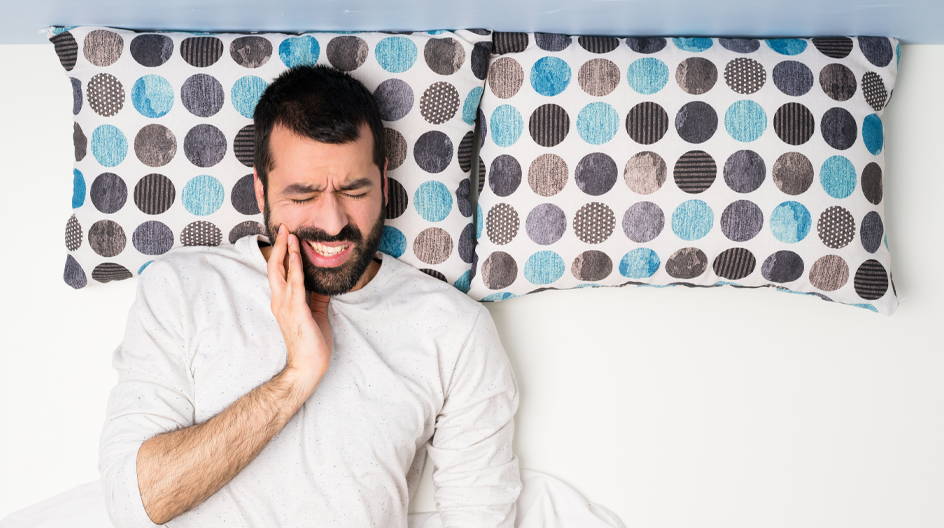
We often take the importance of a good night’s sleep for granted, i.e. until pain keeps us up all night and we begin to face the difficulties of surviving the day while battling fatigue. Many studies have shown that good sleep is vital for our health. For instance, sleep apnea is linked to dry mouth (which causes tooth decay), teeth grinding, and tooth loss. However, it also works the other way around; that is, dental problems can make it impossible to get your required zzzs. In this post, we reveal the relationship between oral health and sleep, suggesting ways to improve both.
What are the Main Dental Issues that Interfere with Sleep?
One of the biggest problems when it comes to sleep quality is bruxism. If you have sleep apnea or you are suffering from stress, the tendency can be to grind teeth, harming the enamel and making your teeth more vulnerable to tooth decay. Teeth grinding can additionally lead to TMJ (temporomandibular joint disorder), which can cause headaches, pinched nerves, and oral pain – ingredients which do not make for a good night’s sleep.
Gum Diseases and Sleep
Gingivitis, an inflammation of the gums, causes bleeding, inflammation, and pain. When ignored, it can lead to tooth loss, so it is vital to see your dentist immediately for treatment and for regular cleanings.
You can avoid Gingivitis by brushing properly and flossing to remove the plaque and debris that causes tartar buildup. Cigarette smoking is a no-no because it is a big risk factor for gum disease.
Finally, the consumption of a sound, nutritionally balanced diet is important for the health of your jawbone and teeth. Indeed, in general, a proactive and preventive approach to dental health should be taken, because the costs associated with decayed and missing teeth are high and are not always covered by insurance plans. Medicaid, for instance, normally covers only what is deemed necessary dental work, not so-called ‘aesthetic procedures’ such as implants or bone augmentation, which may be required to fill gaps caused by missing teeth.
Tooth Loss and Pain
Discussed less frequently in conjunction with sleep, tooth loss can interfere with sleep by producing pain. Those who are missing just one tooth may not notice much of a difference at night, but when two or more teeth are missing, movement can ensue, affecting bite. Any grinding that takes place at night can cause strong pain when one side of the mouth is missing teeth, because all the pressure of grinding is supported by fewer teeth.
Moreover, when large gaps are present in the mouth, mouth guards don’t necessarily help, because remaining teeth will still move excessively if bruxism is a problem for you.
There is an important connection between how we sleep and function on a daily basis; pain, whether caused by oral or other problems, is a leading reason why so many people fail to get a good night’s sleep. If you are grinding teeth or you have big gaps in your mouth, see your dentist about solutions that will help get rid of pain and enable you to enjoy the restorative effects of sleep.
Content provided by Sally Writes.
